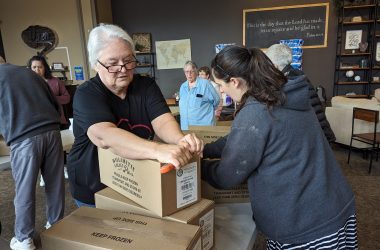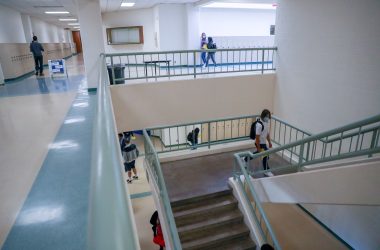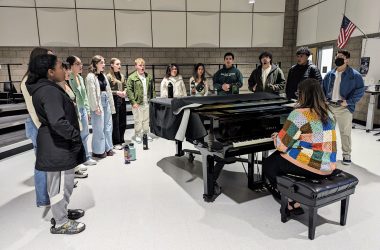High school students in rural Marion, Polk and Yamhill counties will have more chances to earn college credit and learn career skills thanks to a new Chemeketa Community College grant.
The Salem-based college was recently awarded a $2.2 million federal grant for a program to expand dual credit classes for students in rural school districts — typically without them having to travel to Salem for class.
The four-year grant will focus on career and technical education programs.
“I’m just really excited about being able to reach and support students that maybe didn’t know about what we have offered at Chemeketa and who maybe didn’t think that this was an option for them,” said Sara Hastings, Chemeketa’s dean of high school partnerships.
Chemeketa already offers classes where high school students can earn both high school and college credit. Some are held on the Chemeketa campus and taught by college instructors, while others are taught by high school teachers with special credentials.
Chemeketa charges participating school districts $30 per student per year to take the courses — well below the cost of typical college credit — and many school districts cover the cost for their students, making the courses free.
But accessing those classes can be a challenge for students in smaller schools, which may not have enough participants to justify an on-campus class, or the means to get to a Chemeketa campus.
Hastings said the grant will build on work the college did during the Covid pandemic to add classes that can be taken remotely or hybrid.
One example is a hybrid horticulture class, where students covered the material with an instructor remotely, then had two in-person lab days where Chemeketa provided transportation. Chemeketa’s pharmacy tech class was also successful in a hybrid format.
“One of the elements of this grant is to scale up into other types of CTE … reach more students and have it be more robust in the rural areas of our service district,” Hastings said.
Hastings said the grant also includes opportunities to do outreach and recruit high school students who might not consider taking college credit classes.
To do that, the college is working with Juntos, an Oregon State University extension program that works with Latino families to help students, particularly in rural areas, access college.
Gina Galaviz-Yap, the Juntos director, said many of the families they work with don’t know about dual credit or seek it out.
“It’s still kind of a perception of if it’s a college credit, it’s going to cost,” she said. The view she works to dispel is “this is unattainable, this is not for us.”
The specifics of Juntos’ role in the grant are still being worked out, but Galaviz-Yap said she hopes it will make dual credit more accessible to the families they serve.
Steve Spencer, superintendent of the Dallas School District, said he’s seen the benefit large career technical education hubs have for high schoolers. The Salem-Keizer School District operates a Career Technical Education Center, while the Willamette Education Service District has the Willamette Career Academy, also in Salem, which is open to high schoolers from around the region.
He’s hopeful the grant could help jumpstart a similar program in Dallas, open to students in other rural Polk County districts who struggle to make the trip into Salem.
Regardless of the specifics, Spencer said the money will give Dallas students more options.
“That’s the exciting part,” Spencer said.
Contact reporter Rachel Alexander: [email protected] or 503-575-1241.
SUPPORT OUR WORK – We depend on subscribers for resources to report on Salem with care and depth, fairness and accuracy. Subscribe today to get our daily newsletters and more. Click I want to subscribe!

Rachel Alexander is Salem Reporter’s managing editor. She joined Salem Reporter when it was founded in 2018 and covers city news, education, nonprofits and a little bit of everything else. She’s been a journalist in Oregon and Washington for a decade. Outside of work, she’s a skater and board member with Salem’s Cherry City Roller Derby and can often be found with her nose buried in a book.









